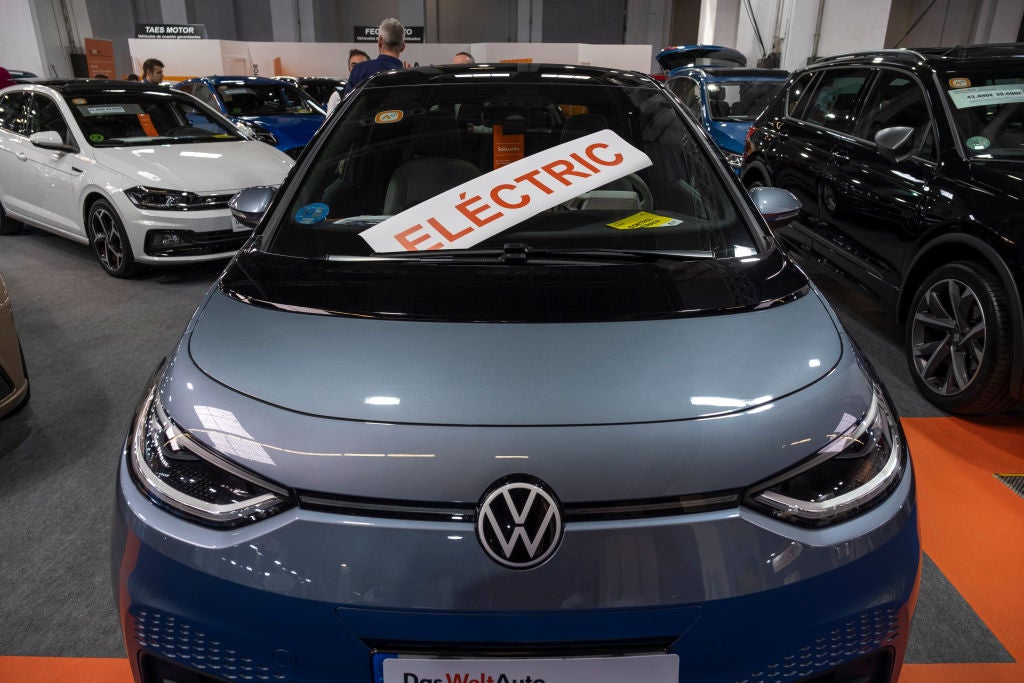Electric vehicles (EVs) are often cited as an energy transition success story. Yet they account for a tiny amount of cars, trucks, motorcycles and vans on the road – and, if one day every fossil fuel vehicle were replaced with an EV, this shift would do nothing to reduce congestion and would cause significant environmental harm.

Behavioural change, as advocated by the International Energy Agency (IEA) and others, is vital, but the messaging and incentives to move the focus from technology and transport to people and mobility are weak. Governments and private companies must wrestle properly with the conundrum of how we break our love affair with private car ownership, and create fair policies that reduce emissions yet allow people to move about easily and safely.
Globally, there are almost 20 million passenger EVs on the road and more than 1.3 million electric buses, delivery vans and trucks. That is not to mention the more than 280 million electric mopeds, scooters, motorcycles and three-wheelers that have appeared on our roads – and our pavements – according to the latest figures from research company Bloomberg New Energy Finance. Yet oil still accounts for 90% of final energy consumption in the global transport sector. Biofuels and natural gas provide for almost all the remaining demand.
The stark truth is that the share of electricity in road transport was less than 1% in 2021, reveals the IEA’s recent Global Outlook report 2022. Further, transport saw the largest emissions growth of all end-use sectors from 2010 to 2019 as demand increased from passengers and goods.
Last year, global CO2 emissions from the sector rebounded to 7.7 gigatonnes (Gt), from 7.1Gt in 2020, as demand recovered from the Covid-19 pandemic. Road transport was the biggest contributor to this jump, emitting 5.9Gt of CO2 in 2021 – more than all the energy‐related carbon emissions of North America.
Transport emissions: beyond electrification
Electrifying vehicles is just one part of decarbonising the global economy. “Behavioural change,” the IEA report notes, is just as important. BloombergNEF takes a similar line: “Simply changing out the drivetrain of vehicles may not be the most efficient way to deliver net zero. A full range of solutions – including more public transit, and active transport options [such as walking and cycling] – will be needed”.

US Tariffs are shifting - will you react or anticipate?
Don’t let policy changes catch you off guard. Stay proactive with real-time data and expert analysis.
By GlobalDataAnswering this call demands a change in mindset from policymakers, automobile manufacturers and the general public. Car-sharing schemes and regular electric bus services, trains that run on time and safe bike lanes should be the norm everywhere. Rather than putting our faith solely in technologies that can replace petrol and diesel, we should start asking what people need and how this need can best be met with the fewest emissions.
[Keep up with Energy Monitor: Subscribe to our weekly newsletter]
Clarity of thought, targeted investment and well-designed goals and metrics to measure progress are key. Simply citing increases in EVs as progress on the path to decarbonisation will send the world in the wrong direction. The focus must also be on reducing the number of vehicles on the road, ending the antiquated idea that possessing a big car is a sign of success, and measuring – and celebrating – more clearly triumphs in public transport spending, growth and efficiency.
Too many of the EVs speeding onto our roads, starring in adverts and staring down from billboards are massive SUVs that carmakers claim will save the world. They will not. While the amount of minerals needed to create batteries will doubtless reduce as processes become more efficient and supply chains increasingly circular, it is naive to think EVs cause no harm in countries providing the minerals for a net-zero world. The energy transition isn’t a zero-sum game. There will be winners and there will be losers, but ultimately the outcome should be better for everyone. Roads clogged with electric SUVs won’t deliver this.




